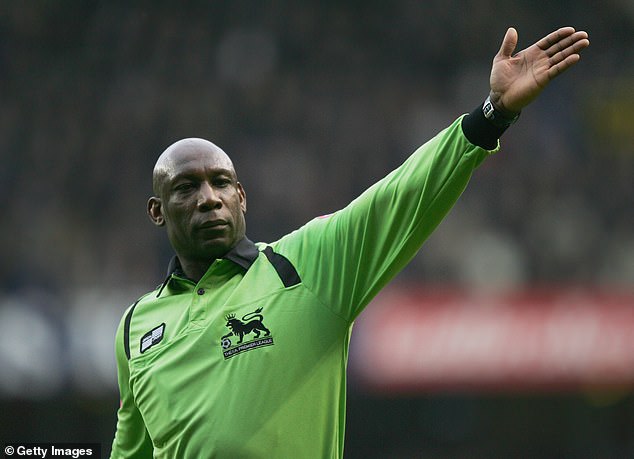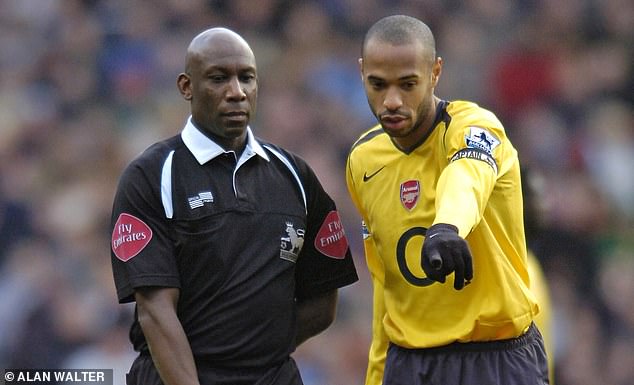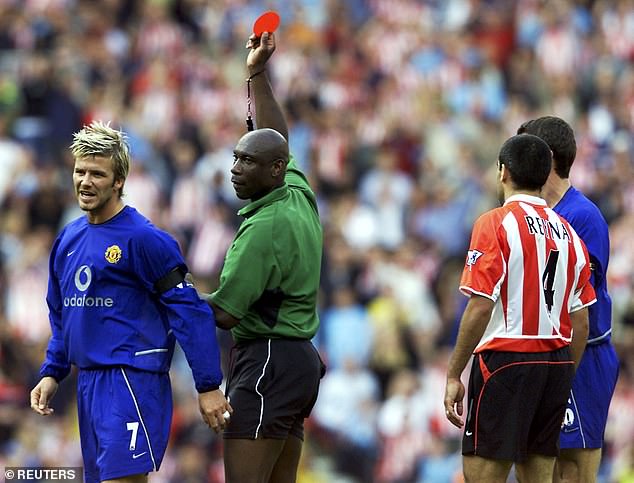- Uriah Rennie refereed over 300 Premier League matches from 1997 to 2008
- He has now been diagnosed with a rare condition and is learning to walk again
- LISTEN NOW: It’s All Kicking Off! Why it makes more sense for Manchester United to sell Marcus Rashford
The Premier League‘s first black referee, Uriah Rennie, has opened up on his battle to walk again after being diagnosed with a rare condition that left him paralysed from the waist down.
Rennie, 65, refereed over 300 top flight matches between 1997 and 2008, and was once branded the ‘fittest’ official in world football.
But his world was turned upside down last year while on holiday in Turkey after he started feeling severe pain in his back.
Rennie was subsequently told by doctors that he had an inoperable neurological condition, and he has revealed how he is now wheelchair-bound after spending several months in hospital.
‘I spent a month laid on my back and another four months sitting in bed,’ he told BBC News.
‘They kept me in hospital until February, they found a nodule pushing on my spine and it was a rare neurological condition so it’s not something they can operate on.

Ex-Premier League referee Uriah Rennie (pictured) is learning to walk again after being diagnosed with a rare condition

Rennie (pictured alongside Thierry Henry), refereed over 300 Premier League matches

He once sent off Roy Keane while David Beckham watched on during Man United’s 1-1 draw with Sunderland in 2002
‘I have had to learn to move all over again, I’m retraining my legs.
‘I can move my feet and I can stand with a frame attached to my wheelchair but I need to work on my glutes.’
Rennie was set to start a new job as Sheffield Hallam University chancellor when he was admitted to hospital.
He has refused to let his diagnosis derail his plans to help his local community, revealing he still worked from his hospital bed, and he will now officially start his new position next month.
Rennie, who was born in Jamaica before moving to the UK at the age of six, is determined to get back on his feet as he thanked those close to him for their support during a challenging period in his life.
‘It has been frustrating but family and friends have been invaluable, the hospital was absolutely superb and the university has been exceptional,’ he added.
‘I emphasised I wanted to make a difference to Sheffield and to communities here.
‘I carried on working with community sports teams while in hospital, directing them from my bed.
‘I’m aiming to be the best I can physically.
‘No one has told me I won’t walk again, but even if someone did say that I want to be able to say I did everything I could to try.’
More to follow…







